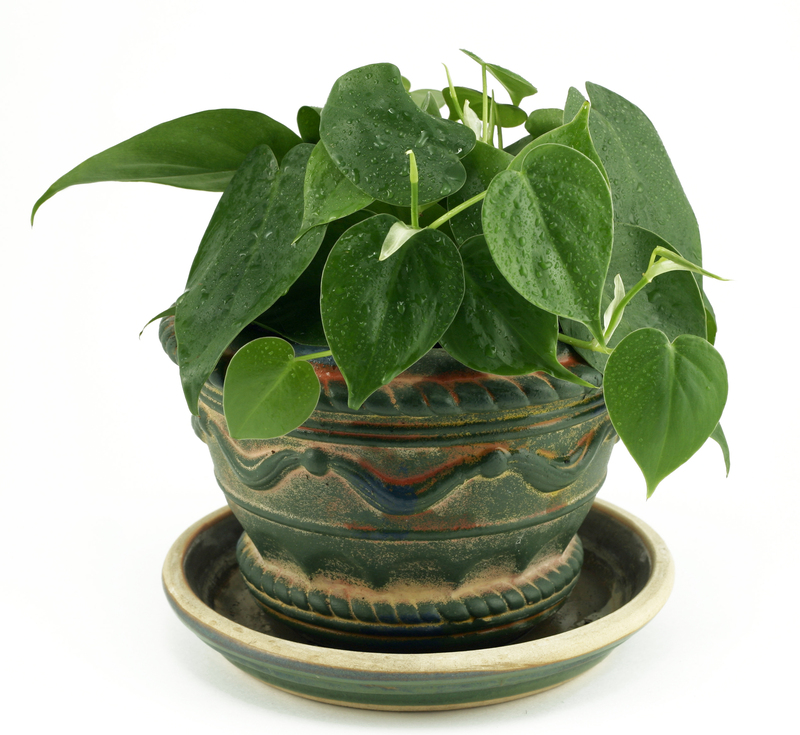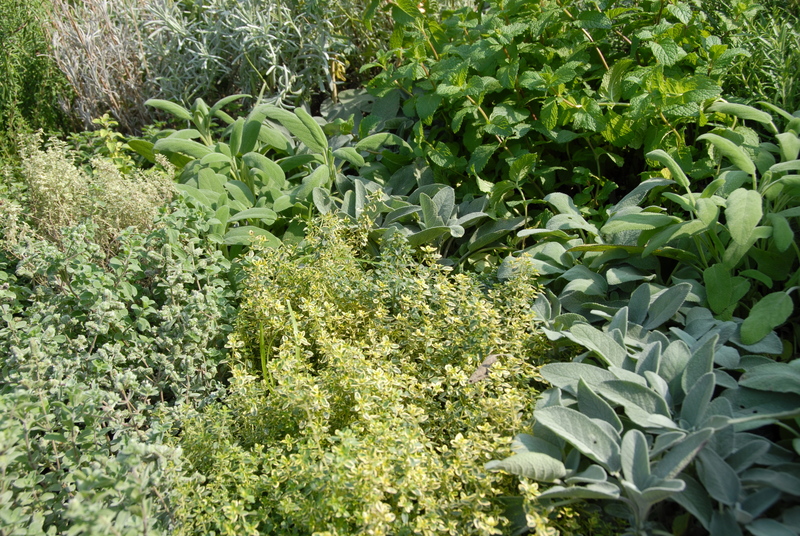Launching Your Gardening Adventure: 9 Crucial Beginner Tips
Posted on 04/09/2025
Launching Your Gardening Adventure: 9 Crucial Beginner Tips
Are you ready to dig into the world of gardening but don't know where to start? Launching your gardening journey is both exciting and rewarding, offering a chance to reconnect with nature, grow your own food, or create stunning landscapes. However, every green thumb begins somewhere, and having the proper plan and knowledge is vital. In this comprehensive guide, we'll walk you through 9 essential gardening tips for beginners to help you develop confidence, avoid common mistakes, and ensure a flourishing start to your gardening adventure.
Why Gardening Is the Ultimate Lifestyle Upgrade
Before we dig into the tips, let's briefly explore how starting a garden can transform your lifestyle. Gardening isn't just about pretty flowers or homegrown tomatoes--it's a source of relaxation, healthy exercise, and satisfaction. Studies show that spending time with plants can reduce stress, boost mental health, and even strengthen your immune system. Plus, tending your own garden reduces grocery bills and enriches your dinner table with fresh, organic food.

1. Start Small and Know Your Motivation
The most common mistake for novice gardeners is diving into big projects without a clear plan. Ask yourself:
- Why do I want to start gardening? (For food, flowers, fun, or a combination?)
- How much space, time, and budget do I realistically have?
- What are my short-term and long-term gardening goals?
Tip: Begin with a small, manageable plot or container garden before expanding. This allows you to learn at your own pace, gain experience, and avoid overwhelm. Launching your gardening adventure with focused intent increases your chance of long-term success.
2. Choose the Right Location
Location is crucial for your new garden's health. Observe your yard or balcony at different times of the day. Notice how sunlight moves and how wind, shade, and drainage affect the area.
Key location considerations:
- Sunlight: Most vegetables and many flowers need at least 6 hours of direct sunlight daily. If space is limited, consider shade-loving plants or herbs.
- Water source: Choose a spot close to water for easy irrigation. Hauling buckets quickly loses its charm!
- Accessibility: Ensure you can easily reach your garden throughout the year--including for planting, weeding, and harvesting.
- Protection: Consider fencing or barriers if pets or wildlife are common in your area.
Remember: Starting in the right place sets a strong foundation for every aspect of your gardening adventure.
3. Understand Your Soil
The health of your garden begins in the soil. Good soil provides nutrients, holds moisture, and allows roots to breathe. Start with a simple soil test--many extension offices or garden centers offer affordable kits.
Check for:
- Texture: Clay can be compacted, sandy drains too fast, loamy soil is ideal.
- pH: Most vegetables and flowers thrive in slightly acidic to neutral soil (pH 6.0-7.0).
- Nutrients: Assess levels of nitrogen, phosphorus, and potassium.
Amend your soil by adding organic matter (compost, well-rotted manure, or leaf mold). Healthy soil is the bedrock of every successful garden and will save you time and frustration down the line.
4. Select Easy-to-Grow Plants
When launching your gardening journey, success breeds enthusiasm! Start with plants known for their resilience and minimal care requirements. Popular beginner choices include:
- Vegetables: Lettuce, radishes, beans, and zucchini.
- Herbs: Basil, chives, mint, and parsley.
- Flowers: Marigolds, zinnias, cosmos, and sunflowers.
Tip: Choose varieties labeled "easy" or "great for beginners." Read plant tags for growth habits and care requirements. Don't be afraid to ask at your local nursery for advice tailored to your climate.
Experiment with Container Gardening
If you lack space or want to start even smaller, container gardening is an excellent way to begin your gardening adventure. Try growing herbs, tomatoes, or flowers in pots on a patio or balcony.
5. Learn the Basics of Plant Care
Every type of plant has its own needs, but there are universal rules of thumb every gardener should know:
- Water: Most plants prefer deep, infrequent watering over frequent, shallow drinks. Water at the base and early in the day to keep foliage dry.
- Mulch: Add a layer of organic mulch (like bark, straw, or shredded leaves) to retain soil moisture, suppress weeds, and regulate temperature.
- Feeding: Use slow-release fertilizers or organic compost to give plants a steady supply of nutrients.
- Thinning and pruning: Regularly remove dead or crowded shoots to ensure good airflow and healthy growth.
Good garden habits started today will pay off in healthy, pest-resistant plants all season long.
6. Learn to Identify and Manage Pests Early
Every beginner gardener dreads pests. From hungry caterpillars and aphids to rabbits and snails, some critters will see your new plot as an open buffet. Early identification is key to preventing infestations:
- Check your plants regularly for holes, spots, or chewed leaves.
- Attract beneficial insects (like ladybugs and lacewings) by planting companion flowers.
- Handpick larger pests or use organic deterrents (like neem oil or diatomaceous earth) as needed.
Tip: Avoid chemical pesticides unless absolutely necessary, especially in edible gardens. Healthy, diverse gardens naturally attract allies in the battle against pests.
7. Embrace the Power of Patience
Perhaps the most important gardening lesson of all: Good things take time! Seeds require days or weeks to sprout, and plants grow at their own pace. There will be setbacks--bad weather, failed crops, missed steps. Don't get discouraged.
Celebrate small victories--your first seedling, flower, or harvest. Keep a gardening journal to record what works (and what doesn't) as your experience grows. Remember, every master gardener once started out just like you.
8. Gather the Right Tools, But Don't Overspend
While gardening shops are filled with enticing gadgets, you don't need a huge budget to begin. Focus on quality over quantity with these beginner essentials:
- Sturdy trowel and hand fork
- Watering can or hose with adjustable nozzle
- Pruning shears
- Gloves
- Rake and spade (if you have a larger garden)
- Buckets or containers for weeding and harvesting
Properly clean and store your tools after each use for longer life. Over time, you can invest in additional tools as your confidence and needs grow.
9. Connect with the Gardening Community
Launching your gardening adventure isn't meant to be a solo endeavor. Community gardens, local clubs, online forums, and social media are invaluable sources of advice and inspiration. Don't hesitate to ask questions, share milestones, or swap seeds and cuttings. Gardening is a journey best enjoyed with friends!

Gardening Adventure FAQ for Beginners
How much time will I need to dedicate to my garden?
Start with as little as 15-20 minutes a day. As you become more experienced, you may choose to expand. Consistent small efforts yield great results.
Is gardening expensive to start?
No! Beginning your gardening journey can be very budget-friendly with seeds, upcycled containers, and homemade compost. Borrow tools or join a community garden to minimize initial costs.
What if my garden fails?
Every gardener faces setbacks. Learn from mistakes, try again, and remember--gardening is a process, not perfection.
Your Gardening Adventure Begins Now!
There's never been a better time to launch your gardening journey. Whether you're looking to fill your home with vibrant flowers, grow your own groceries, or simply spend more time outdoors, the tips above provide a rock-solid foundation for thriving in your new green role. Remember: start small, be curious, celebrate progress, and enjoy every step of your gardening adventure--nature's most rewarding classroom.
Happy gardening! And may your first harvest be only the beginning of a lifetime filled with growth and green satisfaction.



